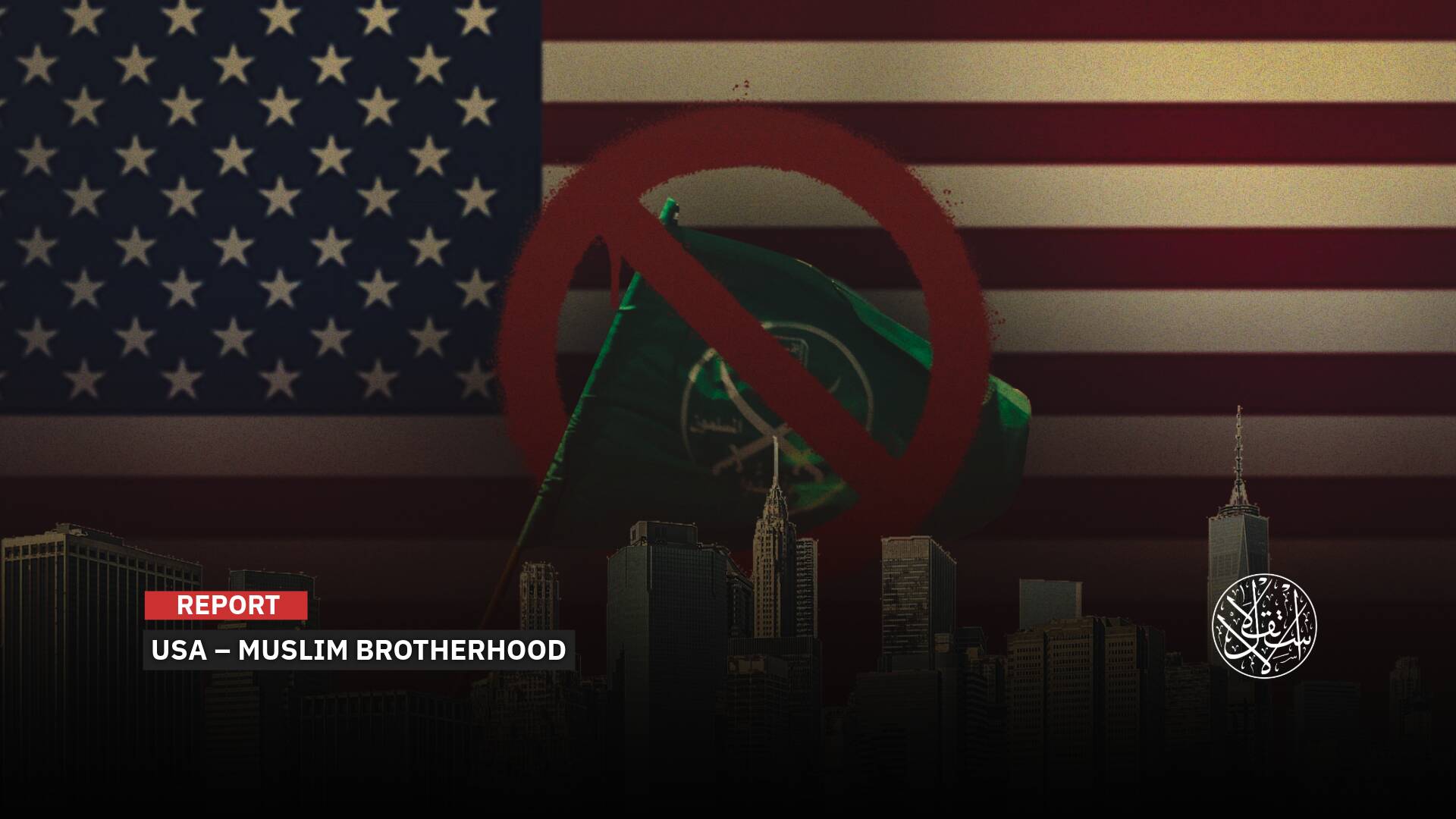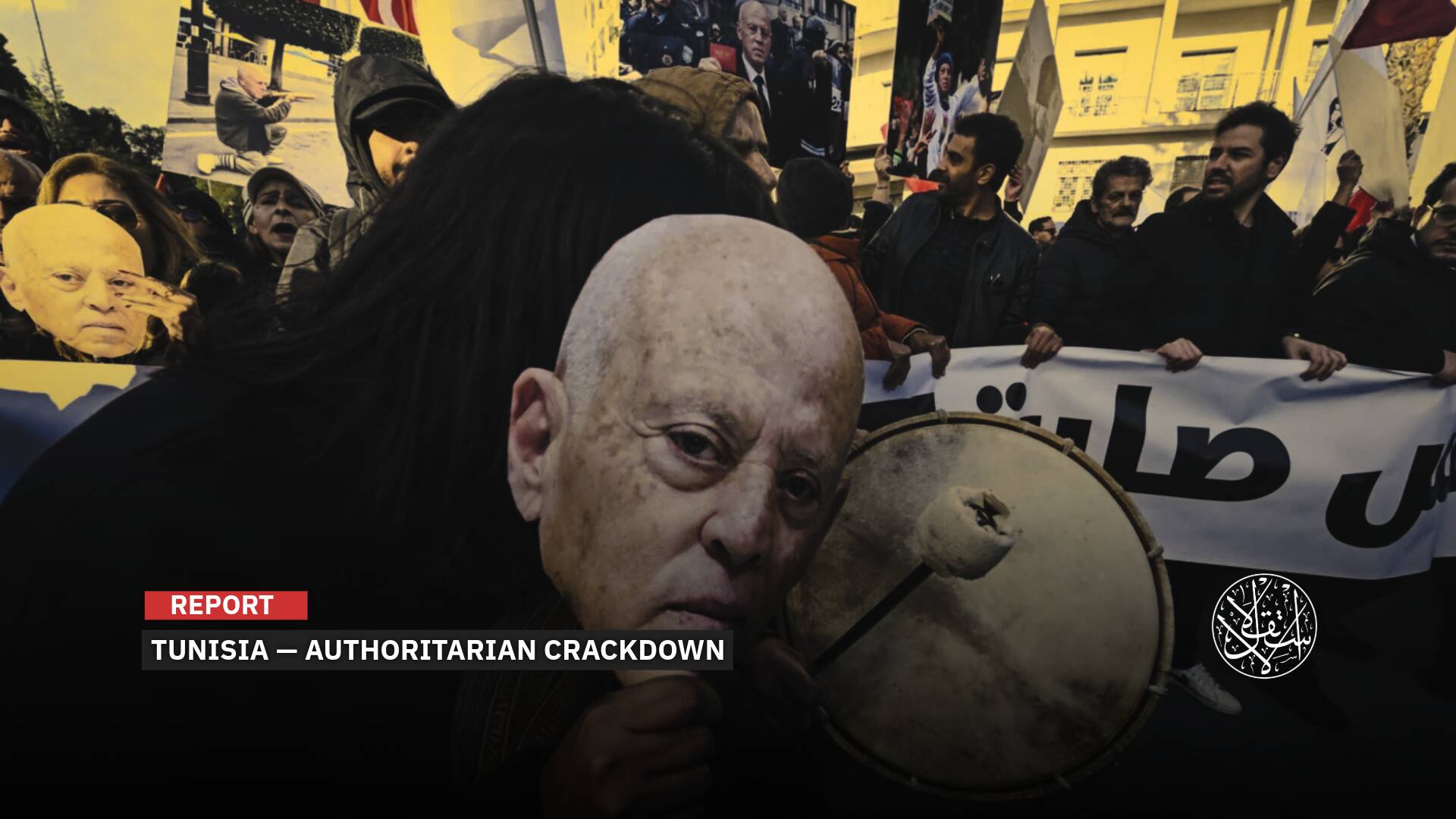Sa’ad al-Faqih to Al-Estiklal: Clash Between bin Salman, bin Zayed Is a Fact, and the Rapprochement with China Is a Concern

Sa’ad al-Faqih, the Saudi opposition leader and head of the Movement for Islamic Reform in Arabia, asserted that Saudi Crown Prince Mohammed bin Salman has distanced himself from his loyalty to UAE’s Crown Prince Mohammed bin Zayed and has entered a phase of confrontation with him.
Nevertheless, he is worried and cautious as he recognizes that the latter possesses the capacity to inflict harm on him, owing to his extensive network of global relationships.
In an exclusive interview with Al-Estiklal, Sa’ad al-Faqih underscored that the kingdom stands as a prime area of American influence, with its security and economic structures meticulously designed to align with Washington’s interests. He dismissed recent rumors of potential strategic relations with China or Russia, stating that such maneuvering would be highly unlikely.
Regarding normalization with Israel, al-Faqih confirmed that the Israeli Occupation does not need America’s help to push Mohammed bin Salman toward normalization. On the contrary, he is more enthusiastic about it than even the leaders of “Tel Aviv” themselves.
As for Turkish President Recep Tayyip Erdogan’s visit to Saudi Arabia, he pointed out that it is important to cautiously consider the Saudi–Turkish rapprochement, adding that despite the sincerity and integrity of Turkiye’s approach, Mohammed bin Salman’s position is slow and not to be trusted for a coup.
Locally, the Saudi opposition leader stressed that under Mohammed bin Salman’s reign, the kingdom has turned into a repressive police state, where security forces have unrestricted powers to arrest anyone without oversight or accountability.
Sa’ad bin Rashed al-Faqih, 66, is a surgical medical consultant and the head of the Political Office of the Committee for the Defense of Legitimate Rights (a human rights group) and the founder of the Movement for Islamic Reform (a political movement). Both entities are banned in Saudi Arabia, and he continues his work from the United Kingdom.
.png)
Regional Updates
1. How does Sa’ad al-Faqih view the Turkish–Saudi rapprochement amid President Recep Tayyip Erdoğan’s recent visit to the kingdom?
Sa’ad al-Faqih: The Saudi–Turkish rapprochement should be approached cautiously, as Saudi Arabia’s position is slow, cautious, and limited, and it does not believe in the sincerity of the Turkish approach.
Mohammed bin Salman’s abandonment of his hostile stance toward Erdogan has several reasons, including Erdogan’s recent election victory and his party’s success. Additionally, Mohammed bin Salman is concerned about Erdogan’s continued leadership in Turkiye.
Moreover, the disagreement between Mohammed bin Salman and the UAE’s Crown Prince Mohammed bin Zayed, who had continuously encouraged him to oppose Erdogan, and his belief in the growing Iranian threat played significant roles in the change of stance.
2. Do you believe President Erdogan’s visit to the kingdom benefits Crown Prince Mohammed bin Salman, and if so, how?
Sa’ad al-Faqih: According to our standards, the visit is undoubtedly beneficial, especially in terms of the economy, military, and reputation in the Arab and Muslim worlds. However, he mentioned that Mohammed bin Salman might only be interested in personal calculations and balance.
3. What are the implications of this rapprochement on the political, economic, and military levels after President Erdogan’s election victory?
Sa’ad al-Faqih: It is assumed that the Saudi side would benefit militarily, while the Turkish side would benefit economically, and both sides could benefit politically, but these assumptions are based on expectations.
However, the details of the agreements between the Kingdom and Turkiye have not been clarified yet, and even if they become clear, there is no guarantee of the Saudi side’s commitment to them.
4. How do you assess the outcome of the Saudi–Iranian rapprochement after a few months and its implications for the Gulf region?
Sa’ad al-Faqih: The reason behind Mohammed bin Salman’s approach to Iran was to use it as leverage to pressure the Houthis into accepting a permanent solution in Yemen, but it seems that this has not been achieved or will be achieved. Instead, the Iranians have settled for pressuring the Houthis to extend the ceasefire.
Another reason for the rapprochement is Mohammed bin Salman’s desire to convince Iran that Saudi Arabia will not be responsible for any strike Tehran may face from the United States or Israel, but I do not expect Tehran to be convinced of this.
5. How do you see the shape of the region in our Arab area after the Saudi–Iranian rapprochement and the inclusion of Turkiye and Egypt?
Sa’ad al-Faqih: Nothing tangible will change in the regional situation unless a regional war breaks out with Iran or a major transformation occurs in Israel after the serious disputes happening within it.
.png)
Gulf and Dependency
6. What are the achievements of the Gulf Cooperation Council (GCC) and the possibility of achieving the desired economic integration?
Sa’ad al-Faqih: The Gulf Cooperation Council (GCC) has achieved nothing except unifying positions in favor of American policy, and it has not achieved any economic, security, or political understanding throughout the past decades. On the contrary, disruptions occurred that almost led to internal wars within the council.
7. Is Mohammed bin Salman starting to take the lead and break away from his subservience to Mohammed bin Zayed and Abu Dhabi?
Sa’ad al-Faqih: Yes, Mohammed bin Salman has broken away from his subservience to Mohammed bin Zayed and entered into a phase of confrontation with him. However, he is concerned and apprehensive because he knows that the UAE’s Crown Prince can harm him due to his extensive global experience and intelligence networks.
8. What is your opinion on Mohammed bin Salman’s approach toward China and Russia, and what is Washington’s stance on this?
Sa’ad al-Faqih: All the talk about Mohammed bin Salman’s orientation toward China and Russia is mere rhetoric and lacks any real basis. The trade and tourism relations with these countries have been in place for a long time, and the United States has no objection to that.
However, when it comes to security and military ties, the U.S. will never allow it, as Saudi Arabia remains a significant area of American influence. The entire military, security, economic, and strategic system of the country has been built on subservience to the United States.
9. Is it possible for Mohammed bin Salman to break away from American dependency under any circumstances, and how?
Sa’ad al-Faqih: This is impossible to happen, and Mohammed bin Salman won’t be able to achieve it, no matter how hard he tries, because the kingdom is an area of American influence par excellence, and it’s inconceivable for them to relinquish it, as mentioned in the previous response.
.png)
Normalization with ‘Israel’
10. What is your interpretation of allowing an Israeli sports team with Israeli passports to be present on Saudi Arabian soil?
Sa’ad al-Faqih: The presence of an Israeli sports team and the playing of the Israeli national anthem for the first time on the holy grounds of Saudi Arabia is considered unacceptable by a majority of the Saudi people. However, the reckless prince’s alignment with Israel has reached highly advanced levels.
Crown Prince Mohammed bin Salman has met with Israeli Prime Minister Benjamin Netanyahu several times, and Saudi political, security, and military officials have engaged with their Israeli counterparts under the guidance of bin Salman, granting Israelis entry for tourism and trade into the kingdom.
Israeli companies were also given priority in certain projects, and over ten areas in the western and northern regions of the kingdom were designated, which Jews claim to have historical connections with.
Bin Salman also relied on Israeli experts to rebuild and convert these areas into places of visitation for Jews, providing them full authority to act freely.
Not only that, but bin Salman also granted an Israeli cultural institution complete control over reviewing Saudi educational curricula, purportedly removing any content related to anti-Israel sentiments from Saudi textbooks.
The prince emphasized the Saudi Ministry of Education’s commitment to complying with all recommendations from the Israeli institution and submitting to its demands.
11. Can we expect to see the opening of an Israeli embassy in Saudi Arabia soon?
Sa’ad al-Faqih: There is no eagerness from Israel to open its embassy in Saudi Arabia, as they fear it might harm Saudi Arabia’s reputation in the Islamic world. Israel wants Saudi Arabia to remain a leader in the Muslim world through the holy sites, allowing the continued deception and deviation led by Saudi’s Mohammed al-Issa, the head of the Muslim World League, who visited the Holocaust site (Auschwitz concentration camp in Poland) in 2020.
12. What is the nature of the U.S. role in the normalization between Saudi Arabia and “Israel”?
Sa’ad al-Faqih: The truth is that Tel Aviv does not need the U.S. to push Saudi Arabia toward normalization; rather, Crown Prince Mohammed bin Salman is personally more enthusiastic about it than Israel itself.
This is because he believes that Israel is the one controlling America, Europe, and the world and is capable of manipulating Washington and the West for its benefit.
This was highlighted when President Biden was asked about the rumors that Crown Prince Mohammed bin Salman is conditioning normalization with Israel on improving personal relations with him, to which Biden responded that there is no problem between them.
13. The rapprochement between Tel Aviv and Riyadh: What are its implications on the “Deal of the Century” and normalization agreements in the region?
Sa’ad al-Faqih: The Deal of the Century [a supposed peace plan launched by former U.S. President Donald Trump] will not materialize because it entails ending the suspicious role of the Palestinian Authority in serving and securing the Israeli Occupation.
Ending the authority means the return of uprisings, and that is why Israel, in the first place, does not want the Deal of the Century and insists on maintaining control over Mahmoud Abbas’ leadership.
As for the Abraham Accords, they are artificial arrangements that will not have any religious significance.
.png)
Economics and Abuses
14. What is the future of the NEOM project, which was envisioned by Mohammed bin Salman, and its implications for the Saudi citizen’s conditions?
Sa’ad al-Faqih: The NEOM project is an imaginary venture that has been rejected by all reputable experts worldwide. It is entirely based on Crown Prince Mohammed bin Salman’s fantasies and has not received financial backing from any global financial institution.
As a result, bin Salman was forced to borrow money to initiate its development, and it is unlikely to progress beyond the construction of workers’ and engineers’ housing and work facilities.
15. How is the economic situation in the kingdom during the reign of bin Salman, and have the conditions of Saudi citizens improved?
Sa’ad al-Faqih: All economic indicators are based on numbers declared by the Saudi government without independent verification, and they are all false numbers that auditors can prove false by tracing income sources, expenditures, projects, and overall policies.
In any case, the national debt in the kingdom increased from 40 billion dollars to over a trillion dollars after Crown Prince Mohammed bin Salman took power.
Moreover, the foreign currency reserves in the kingdom declined from a trillion dollars before Crown Prince Mohammed bin Salman’s rule to less than 300 billion dollars after he took the helm.
According to calculations by an expert, more than 2 trillion riyals disappeared from the kingdom’s funds during the reign of Salman and his son.
Unemployment increased, poverty grew, hundreds of companies went bankrupt, and the country’s economic situation deteriorated in an unprecedented manner.
16. How do you follow the issue of arrests in the kingdom, with the latest being the arrest of cleric Badr al-Meshari?
Sa’ad al-Faqih: During the reign of the impulsive prince, the kingdom has transformed into a highly repressive police state. Political arrests in Saudi Arabia have reached tens of thousands, and the decision to arrest individuals is not related to the judicial system or even the public prosecution authority.
State security has the right to arrest anyone based on the slightest suspicion and can keep them in prison indefinitely.
This often targets three types of activists: critics of the regime, even if it’s just a light tweet or retweet; influential Islamic preachers with educational impact, even if they are not opposition figures; or individuals with popularity and a following that authorities fear might pose a future challenge to the government.











